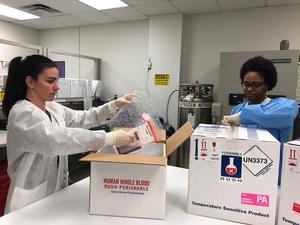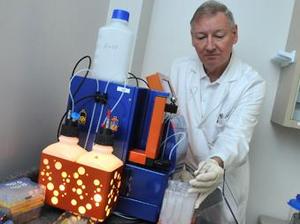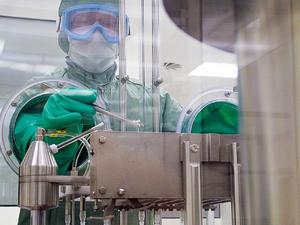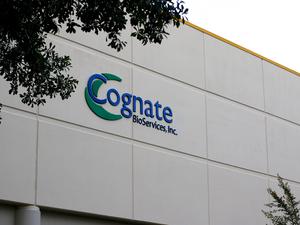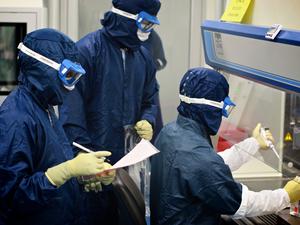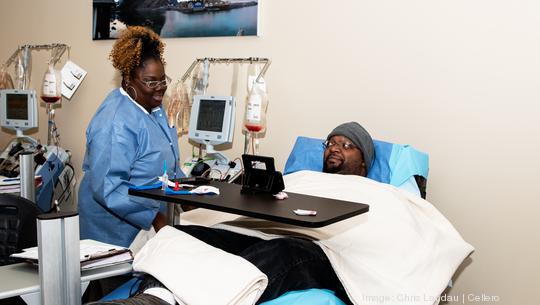
In August 2018, Memphis-based Key Biologics merged with Seattle-based Astarte Biologics.
The combined companies are now operating under the Cellero brand as part of a phased, multiyear growth plan with a goal of hitting $50 million in revenue.
Opening a new facility near Boston and doubling the Memphis site’s collection capabilities are part of a push for growth in the bioscience industry.
In 2009, Dr. Edward Scott, now Cellero’s chief medical officer and former CEO of Lifeblood, acquired the biological services division of Lifeblood.
Key Biologics collects blood products from patients — whole blood, white blood cell products, platelets, plasma, and serum — which can then be used to develop therapeutics for them and used by researchers, as well. Astarte’s focus is on the early basic science research.
“The combined companies give us the capability of providing support for research — primarily research involving human cells and the immune system — all the way from very basic science research through the development of therapeutics that can be used to treat patients and into direct patient care,” Scott said.
Cellero has about 35 employees, which is up from nine when Key Biologics and Astarte merged two years ago.
Those employees are in Memphis, Seattle, and at a newer facility in the Boston area. Located in Lowell, Massachusetts, that facility has been operational for 17 months. The Seattle location of Cellero helps serve Asia and Australia, while the Lowell facility enables quicker service to Europe.
“[Facilities in Seattle and Lowell] allow us to provide products to customers that were difficult to provide out of Memphis in a fresh state,” Scott said. “We can ship from both of those [facilities] and arrive at major metropolitan areas within 24 hours of the time of the completion of the collection of the product.
“It expands our reach,” he continued.
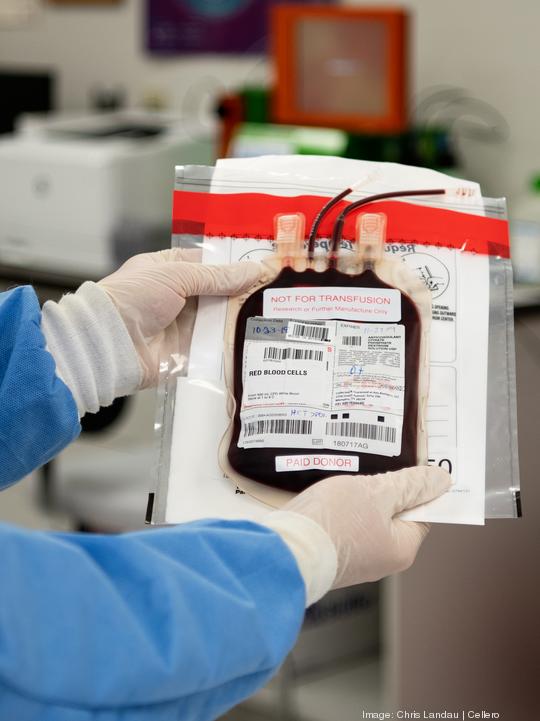
Cellero is actively considering additional collection locations, with California, Texas, or North Carolina as potential good fits.
“We feel there are opportunities," Scott said. "Areas where many of our large customers are located have some advantages." Opportunities, he noted, like the many academic and research centers in Texas.
Locally, Key Biologics employed 16 people earlier this year and ranked No. 6 on Memphis Business Journal’s Biotechnology Companies list.
The merger to create Cellero was facilitated by Boston-based Ampersand Capital Partners. That undisclosed investment has allowed Cellero’s Memphis operations to expand staff and the capability to do different types of blood-product collections and methods, Scott said.
Key Biologics rents space from the Southern College of Optometry at 1256 Union Ave., doubling its floor space over the last two years. The biotech firm now occupies the first and second floors there.
Growth has been strong for Cellero and for its Memphis operations but was curtailed some in April and May due to COVID-19.
In late April, Key Biologics began collecting immune cells, white blood cells, and some plasma from patients who had recovered from COVID-19. The firm is getting a lot of interest in those collected products for research purposes.
These products are not for treating patients with convalescent plasma, but instead are geared to help researchers understand the immune response to COVID-19 and potentially to develop therapeutics.
“[There is] a lot of interest around the country and the world in those types of products now,” Scott said.
Beyond the new COVID-19 product line, Cellero already had significant tailwinds helping navigate the business uncertainty of the coronavirus pandemic.
Since 2018, Key Biologics has doubled revenue, and the Astarte side of the business had growth in the 15-25% range.
“We're still ahead of where we were last year — and last year was a substantial growth year over [2018] — so we're optimistic that we're on the right path,” Scott said.
